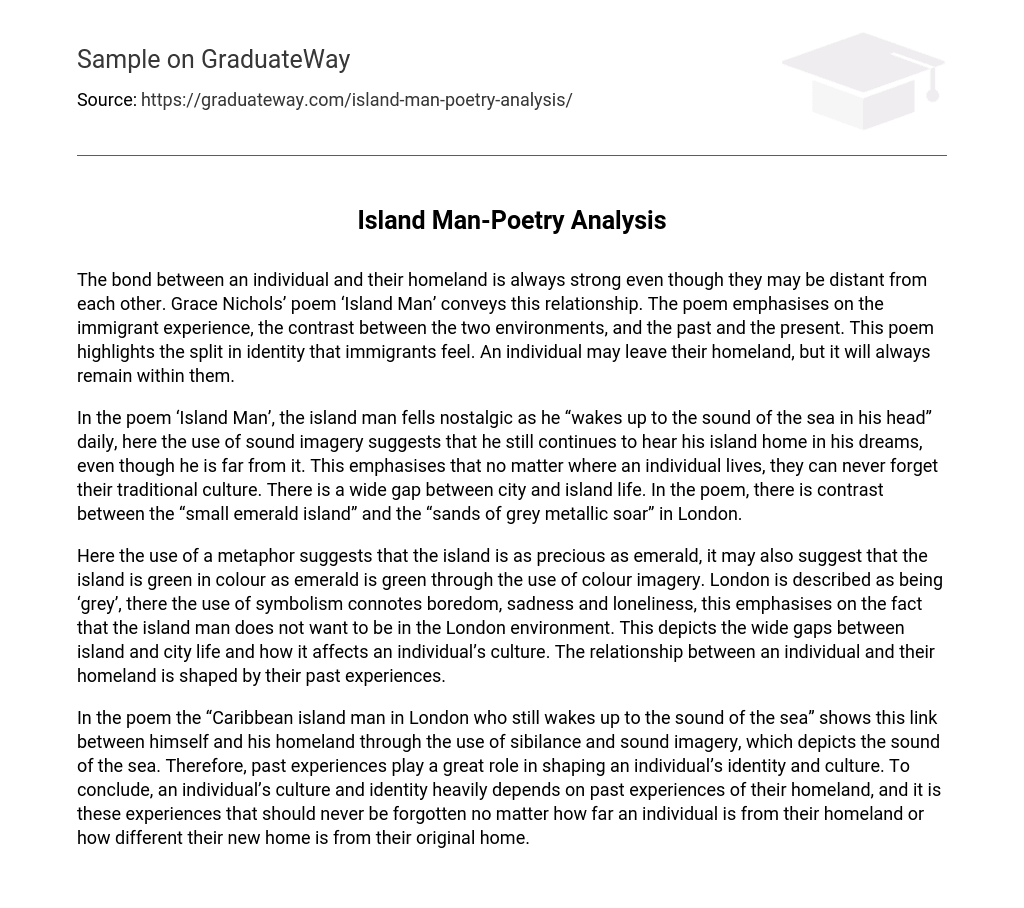The connection between a person and their homeland remains powerful, even when they are physically separated. Grace Nichols’ poem ‘Island Man’ portrays this connection, focusing on the experience of immigrants, the contrast between two environments, and the influence of the past and present. The poem emphasizes the division in identity that immigrants experience, understanding that although they may have left their homeland, it will always be a part of them.
The poem ‘Island Man’ explores the feelings of nostalgia experienced by the island man, who wakes up every day to the sound of the sea in his head. The use of sound imagery suggests that he still hears his island home in his dreams, even though he is far away from it. This highlights the idea that no matter where a person lives, their traditional culture cannot be forgotten. The poem also depicts the stark contrast between city life and island life, with references to the “small emerald island” and the “sands of grey metallic soar” in London.
The island in the metaphor represents how precious and valuable it is, much like an emerald. Additionally, the metaphor suggests that the island is green in color, similar to an emerald, through the use of color imagery. On the other hand, London is described as being “grey,” symbolizing boredom, sadness, and loneliness. This contrast emphasizes the island man’s disinterest in the London environment, highlighting the significant differences between island and city life and how it impacts a person’s culture. Ultimately, an individual’s relationship with their homeland is influenced by their past experiences.
The poem emphasizes the connection between a “Caribbean island man in London who still wakes up to the sound of the sea” and his homeland by employing sibilance and sound imagery to represent the sea’s sound. Hence, one’s identity and culture are significantly influenced by past experiences. In conclusion, an individual’s culture and identity are strongly influenced by their homeland’s past experiences, which should always be remembered regardless of the distance or differences between their current and original homes.





